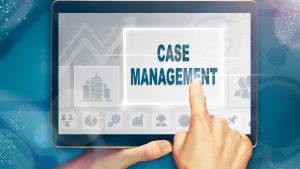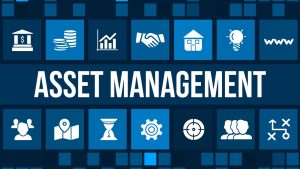A Learning Management System (LMS) is software that tracks, analyses, evaluates, records, organises, and publishes educational courses, training materials, or training and development activities in schools. LMS has an impact on practically every primary industry. Schools, educational institutions, corporations, healthcare professionals, and other organisations benefit from LMS. It may aid in pinpointing the instructor’s communication gaps via reporting and analytics for each individual’s test and assessment results.
Today’s LMSs use artificial algorithms to provide course recommendations based on a user’s ability profile. Additionally, meta-data from learning events will be collected to improve the accuracy of these suggestions. Some of the most effective learning management systems on the market are tailored to a specific grade level of students. Schools often choose a learning system depending on the number of students who will be trained or instructed.
How Does A Learning Management System Work?
A Learning Management System (LMS) is a piece of software designed specifically for online learning programs. It is used in education courses for the following purposes:
- Administration
- Documentation
- Tracking
- Reporting
- Delivery
It acts as a link between the teachers and the students. A learning management system (LMS) makes it much simpler for teachers to offer organised courseware to students. It is a virtual platform that allows you to administer assessments, manage assignments, monitor learners’ progress, etc.
A Learning Management System's Components
There are around 600 distinct varieties of LMS on the market now. Each one has its characteristics and is employed by various industry specialists. Below is a list of some of the most popular components:
- Online Rosters: Rosters are a digitised version of a roll-call sheet used to keep track of attendance. It may also be used to send student invites.
- Centrally Controlled Registration: This feature enables you to keep track of and personalise the registration procedure for each curriculum.
- Document Management: This entails uploading and managing the curriculum’s content documents.
- Multiple Device Access: This refers to the transmission of course materials across multiple interfaces and devices, such as smartphones, laptops, and desktop computers, among others.
- Distributed Instructor and Student Base: This allows instructors and students to engage in remote learning worldwide.
- Course Calendars: These are used to publish course schedules, tests, and deadlines, as well as to send out warnings.
- Student Engagement: Discussion groups and instant messaging facilities may be added to LMS modules. Both may encourage meaningful relationships among and between students.
- Assessments and Exams: Many popular LMS systems provide summative and formative assessments. These forms of comprehensive courseware are particularly beneficial for determining a student’s ability to retain information.
- Grading and Scoring: The advanced grading and scoring systems even create performance charts that track progress over time. Most of the time, they even highlight the “performance sag” areas so that the students may look back and improve.
A learning management system (LMS) is a sophisticated tool for developing, managing and reporting online training and eLearning. Here is to educate you on the types of companies and sectors that might benefit from LMS, so your firm can determine whether it makes sense to use one!
What Can Be Accomplished by Utilising An LMS
LMS differ in features, accessibility, pricing, and dynamics, but they all serve the same purpose. LMS includes the following features, whether it is a powerful LMS for professional growth or an entry-level LMS for learning a new craft:
- Content or a module can be sent quickly through the internet.
- LMS feature or scalable course material
- Compatibility across a variety of platforms (OS, browser, device)
- Content that is tailored to you
- The administration that is centralised and mechanised
- Self-service and self-guided navigation are also available.
- LMS characteristics that are standard
You may divide LMS into basic and robust features or modules to evaluate various providers. Most LMS have all of these fundamental elements, with some LMS including extra functionality for specialist subjects such as post-graduate courses.
LMS platforms can facilitate a plethora of industries, like:
- Healthcare
- Real Estate
- Insurance
- Sales Training Compliance
- Training in Safety
- Sales
- Internal Training and Human Resource
Industries that are Optimised By Employing An LMS
Healthcare
Real Estate
Insurance
Training in Safety
Sales
Internal Training and Human Resources
Employees who have been appropriately onboarded and educated are undervalued for various reasons. HR is vital, whether it is about an internal HR department or a Human Resources firm that concentrates on training the personnel of external companies. LMSs enable HR and any firm needing a fantastic training system to remotely onboard and teach people from one place to another.
During a busy period for recruiting interns, with more giant corporations employing up to 100 interns at a time, It makes no sense for HR to be needed to manually onboard every employee into a system in these instances (that would take forever!). Using LMS, you can simply onboard people in bulk and then enrol them in programs that include onboarding information, administrative paperwork, and any other preliminary training required to get them started! Another HR-related feature is “locking,” which enables course directors to block access to particular modules in a course until the preceding ones are finished.






